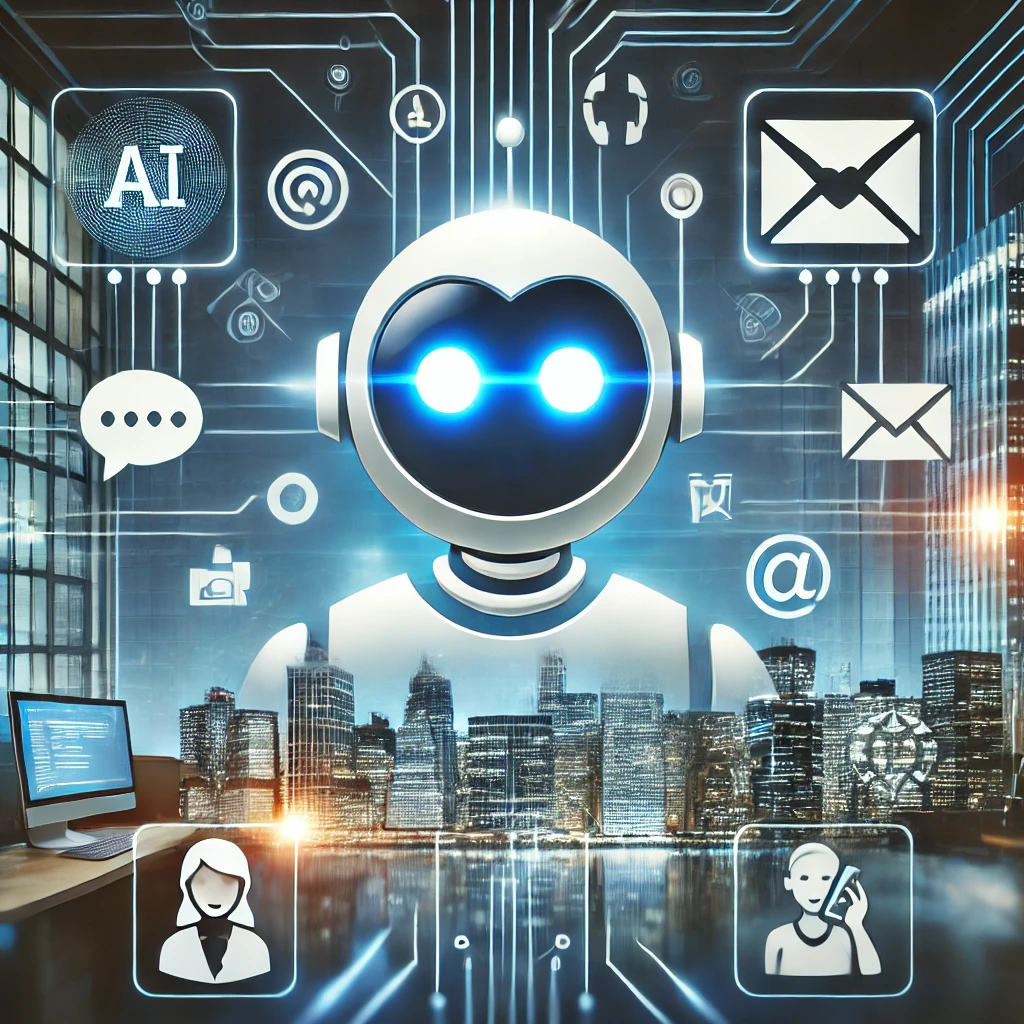Table of Contents
ToggleHow AI Chatbots Help Businesses: The Future of Customer Engagement
In the digital age, customer expectations are higher than ever. They demand quick responses, 24/7 service, and personalized experiences. Meeting these expectations can be challenging for businesses, especially small to medium-sized enterprises (SMEs) with limited resources. This is where AI chatbots come in. AI chatbots have revolutionized the way businesses interact with their customers, offering a host of benefits that drive efficiency, engagement, and growth.
What is an AI Chatbot?
An AI chatbot is a computer program designed to simulate human conversation through text or voice interactions. These bots use natural language processing (NLP) and machine learning to understand customer queries and provide appropriate responses. AI chatbots can be integrated into websites, social media platforms, messaging apps, and even voice assistants like Alexa and Google Assistant.
Benefits of AI Chatbots for Businesses
1. 24/7 Customer Support
One of the most significant advantages of AI chatbots is their ability to provide round-the-clock customer support. Unlike human agents, chatbots don’t need breaks, vacations, or sleep. They can handle customer inquiries at any time, ensuring that your business is always available to assist customers, regardless of time zones.
2. Cost Efficiency
Hiring and training customer service representatives can be expensive, especially for small businesses. AI chatbots offer a cost-effective solution by automating routine customer service tasks. This allows businesses to reduce staffing costs while still maintaining a high level of service. Additionally, chatbots can handle multiple conversations simultaneously, improving efficiency and reducing wait times.
3. Improved Customer Engagement
AI chatbots can engage customers in personalized conversations based on their preferences and behavior. They can recommend products, answer specific questions, and guide customers through the buying process. This level of engagement helps create a more personalized experience, increasing customer satisfaction and boosting sales.
4. Lead Generation and Conversion
AI chatbots can be programmed to capture leads and guide potential customers through the sales funnel. By asking relevant questions and providing tailored responses, chatbots can qualify leads and direct them to the appropriate sales team or provide direct purchasing options. This automation streamlines the sales process and increases conversion rates.
5. Handling Repetitive Tasks
AI chatbots excel at handling repetitive and mundane tasks that don’t require complex decision-making. Whether it’s answering frequently asked questions (FAQs), booking appointments, or processing orders, chatbots can efficiently manage these tasks, freeing up human agents to focus on more complex customer issues.
6. Data Collection and Analysis
AI chatbots can collect valuable data from customer interactions, such as preferences, behaviors, and common issues. This data can be analyzed to gain insights into customer needs, allowing businesses to refine their products, services, and marketing strategies. Chatbots can also integrate with CRM systems, making it easier for businesses to track and manage customer relationships.
7. Scalability
As your business grows, so does the demand for customer service. Scaling a human-powered customer support team can be costly and challenging, but AI chatbots can easily handle an increasing volume of inquiries without the need for additional resources. This scalability allows businesses to manage growth efficiently and maintain a high level of service.
Real-World Applications of AI Chatbots
AI chatbots are being used across a wide range of industries to enhance customer service and drive business success. Here are a few examples:
- E-commerce: Online retailers use AI chatbots to assist customers with product recommendations, order tracking, and returns. This enhances the shopping experience and reduces cart abandonment rates.
- Healthcare: Healthcare providers use AI chatbots to schedule appointments, provide health information, and even offer mental health support. This improves patient access to care and reduces administrative burdens on staff.
- Finance: Banks and financial institutions use chatbots to help customers with account management, fraud detection, and investment advice. This improves customer trust and satisfaction while streamlining financial services.
- Hospitality: Hotels and travel companies use chatbots to assist with booking, customer inquiries, and personalized recommendations. This enhances the travel experience and increases customer loyalty.
The Future of AI Chatbots
As AI technology continues to evolve, chatbots will become even more sophisticated and capable. Future advancements in NLP and machine learning will enable chatbots to understand and respond to more complex customer queries, providing an even more human-like experience. Additionally, the integration of AI chatbots with other technologies, such as augmented reality (AR) and the Internet of Things (IoT), will create new opportunities for businesses to engage with customers in innovative ways.
Conclusion
AI chatbots are transforming the way businesses operate by providing cost-effective, scalable, and personalized customer service solutions. Whether you’re a small business looking to improve customer support or a large enterprise seeking to streamline operations, AI chatbots offer a powerful tool to help you achieve your goals. Embracing this technology can not only enhance customer satisfaction but also drive business growth in an increasingly competitive digital landscape.







Leave a Reply